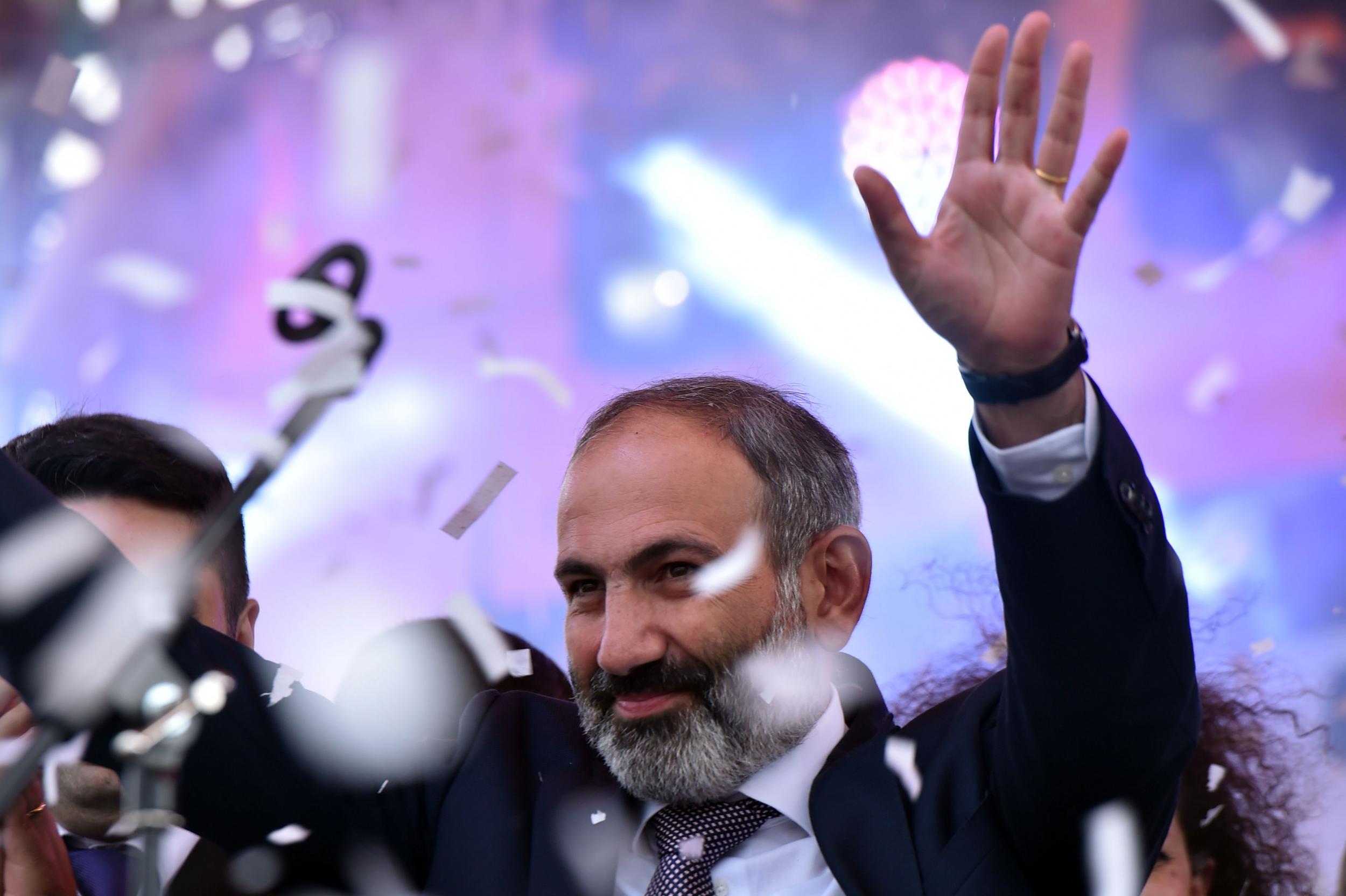Armenia: Protest leader Nikol Pashinyan elected prime minister
Russia has stayed on the sidelines in Armenia's bloodless popular uprising

Armenia’s popular uprising passed a major hurdle on Tuesday, with the election of its leader Nikol Pashinyan as prime minister.
The undisputed king of the streets was voted in by 59 to 42, pushed over the line by the reluctant support of the ruling Republican Party.
It completed an unlikely victory lap for people power. For three weeks, the tiny former Soviet republic has seen unprecedented levels of protest, directed against its former president, Serzh Sargsyan. The long-time leader had tried to trick the constitution and stay on as prime minister – despite promises he would not do so.
Former journalist and opposition politician Mr Pashinyan led passionate demonstrations against this development. And on 23 April, Mr Sargsyan dramatically resigned.
“You were right, and I was wrong,” the former president told Mr Pashinyan.
But this was not the end of the story, and Mr Sargysan’s Republican Party made clear they would resist Mr Pashinyan’s entry to the corridors of power. In a vote last Tuesday, their parliamentarians blocked his candidacy in a controversial 55-45 division.
The protest leader responded by organising a nationwide lockdown: one that quickly seemed to provoke a rethink.
This time, there were no extended speeches or questions in parliament. Instead, the head of the Republican Party’s faction, Vahram Baghdasaryan, said that 10 deputies would be switching their vote in the name of national unity.
But the party was still unconvinced of the revolutionary leader’s abilities. “Don’t consider these votes yours,” he said.
In a short speech addressed to the hundreds of thousands of Armenians assembled outside – he had earlier declared the day a national holiday – Mr Pashinyan said Armenia had turned a page. Political prisoners would now be released, people would be valued and elections would be free.
With snap parliamentary elections on the horizon, the viability of that last promise is likely to be quickly tested. The old guard still holds most of the levers of economic and political power, not least Armenia’s corrupt electoral machine. Mr Pashinyan has vowed to reform that system, but the task is likely to prove very complex.
Without violence and obvious geopolitical dimensions, Armenia’s “love and tolerance” revolution departs from the usual post-Soviet script. Mr Pashinyan has vowed to keep it this way. He has promised to preserve all present arrangements with Russia and the West. And he has emphasised Armenia will remain within Russian’s orbit – in the customs union and the Eurasian Economic Union.
“Our relations need to be based on friendship, equal rights, and a mutual desire to solve problems,” he said. “We see military cooperation with Russia as the main way of ensuring Armenia’s security.”
Vladimir Putin, the Russian president, was one of the first leaders to congratulate Armenia’s new prime minister, Kremlin spokesman Dmitry Peskov said on Tuesday. The two leaders are expected to meet as early as next week, at the summit of the Eurasian Economic Union in Sochi.
Subscribe to Independent Premium to bookmark this article
Want to bookmark your favourite articles and stories to read or reference later? Start your Independent Premium subscription today.

Join our commenting forum
Join thought-provoking conversations, follow other Independent readers and see their replies